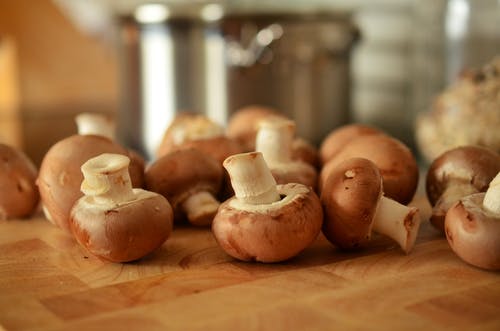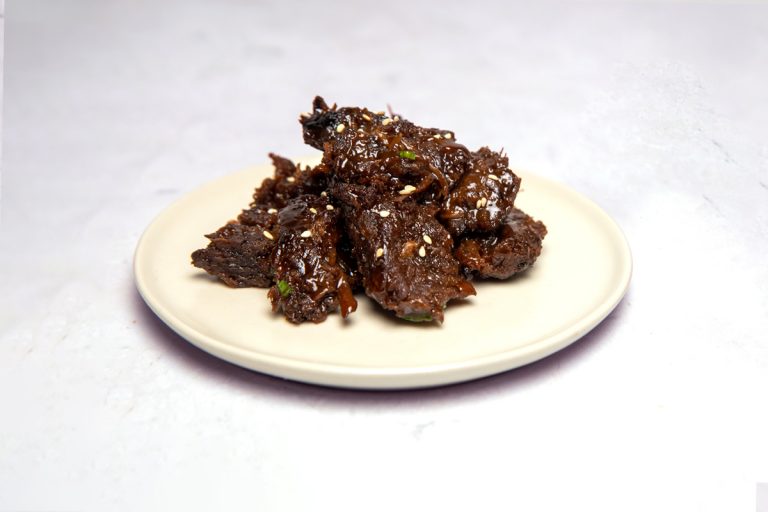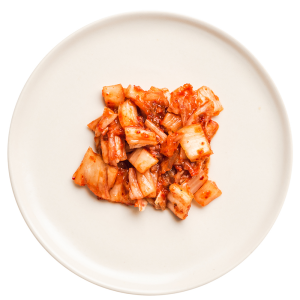These woodland treasures come in all shapes and sizes, but some of them are poisonous- so we’ll be focusing on the edible types! They have different tastes and are staples of different cuisines or even medicinal recipes. It is common to find mushrooms on the edge of forests, growing in different climates and continents. Nowadays, mushrooms can be farmed, packaged and sent directly to supermarket shelves. One thing’s for sure- we should try to eat more mushrooms!
General Benefits of Eating Mushrooms

Like the red mushrooms Mario eats to power up in the popular videogame, regular mushrooms are rich in a variety of vitamins and minerals and are low in calories, sodium and fat. Overall, they can provide a variety of different nutrients that can help support our bodies when combined with a balanced diet.
- Lower blood pressure
- Promote good brain health
- Boost your immune system
- Help with weight loss
- Improves your skin health
- Recently, it has been found that eating mushrooms reduces symptoms of depression.
Mushrooms and a Plant-based Diet

Mushrooms are a great addition to a vegan or vegetarian diet and usually take center stage in meatless recipes. This is because they are one of the few non-meat sources of vitamin D. Mushrooms are classified as fungi and are not part of the animal kingdom because they do not have a nervous system. This means they are unable to feel pain and are about as conscious as a plant is. The main body of the fungus continues to live even after the mushrooms are gone. So there’s no need for vegans to worry that harvesting mushrooms is similar to raising and killing livestock.
Note: Data shows that it is best to eat the majority of mushrooms cooked, even though cooking them may deplete a proportion of their nutritional value. Remember to wash mushrooms that aren’t pre-sliced immediately before use and then pat them dry with a paper towel.
Also, you are more likely to eat more mushrooms in one sitting if they’re cooked. Lastly, shop-bought mushrooms are generally safer than those found in wild food foraging (unless you’re properly trained in foraging).
5 Mushrooms You Can Find in the Supermarket

1. White button mushrooms
The prefix “button” is applied to a few varieties, but mostly to white. Button mushrooms are best left whole or halved. It is one of the most commonly eaten mushrooms in the world. They also contain a type of carbohydrate called polysaccharides that have been shown to have antitumor, or cancer-fighting effects. This helps boost our immune system so that our bodies can naturally fight off tumours on its own.
2. Chestnut mushrooms (AKA ‘brown mushrooms’)
These tan brown mushrooms are commonly used as pizza toppings. They have a better taste and texture than white button mushrooms, despite being of the same variety. They have similar anti-tumor and anti-inflammatory properties.
3. Cremini mushrooms (also spelled as ‘crimini’)
These are brown mushrooms and at the supermarket, you should avoid creminis that appear to have dark, soft or mushy spots. Creminis are the slightly more mature version of the common white button mushroom. As mushrooms age, they get drier and more flavourful.
4. Portobello mushrooms
These mushrooms are a source of riboflavin (AKA vitamin B2) which is important for energy production because it helps the body break down carbohydrates into sugar for fuel. They have a hearty taste and meat-like texture which makes them popular for recipes such as mushroom steak.
5. Shiitake mushrooms
They are native to East Asia. Shiitake mushrooms have one of the highest amounts of natural copper, a mineral that supports healthy blood vessels, bones, and immune support. This makes them a popular mushroom to use in traditional Chinese medicine. They have a rich, savoury taste that goes well in stir-fries, soups and stews.
5 More Exotic Mushrooms

1. Black Trumpet
It is a wild mushroom with a smoky, rich flavour and a pleasant, fruity aroma. They can be sauted on their own and used as pizza toppings or in other lighter-flavoured preparations like fresh pasta and soups. You might be able to find these mushrooms online (which is certainly more convenient than foraging for them).
2. Lion’s Mane
This traditionally medicinal mushroom has a spongy texture. According to many, it tastes just like crab or lobster. Studies have found that it contains two special compounds (hericenones and erinacines) which stimulate the growth of brain cells, though it has not been concluded that it can reduce symptoms of memory loss in humans. These mushrooms are very absorbent, so avoid washing or soaking them with water when you’re preparing them.
3. Oyster mushrooms
There are around 40 types of oyster mushrooms- many of which are edible but not all of them can be purchased in non-local areas. Some of the top types are: yellow oysters, pink oysters and king oysters (the largest of the oyster mushroom genus).
4. Enokitake
Enoki is the name of the Chinese hackberry tree on which these mushrooms grow in the wild, and “take” means mushroom in Japanese. The ‘Enoki’ mushroom has been cultivated into its recognisable thin, white form. They are low in cholesterol, high in dietary fibre, and full of antioxidants. The traditional Japanese method of eating this mushroom is in soup, but they can also be sautéed, stir-fried or fried.
5. Forest Nameko
These mushrooms are commonly used to thicken miso or clear chicken soup. They retain its firm, slightly crunchy texture which remains throughout cooking. Nameko mushrooms are a good source of protein and include essential minerals such as potassium and calcium, as well as polysaccharides.
“Fable”: The Future of Mushrooms

It’s clear that eating more mushrooms is beneficial to our health. Because they are such a good plant-based source of nutrients and has a meaty texture, mushrooms have been used as meat substitutes in recent years. Fable is made from shiitake mushrooms. It’s juicy and dense like regular meat and carries an umami flavour. Three versions of this delicious meat alternative are available for your next family meal on goodfoodpeople.




